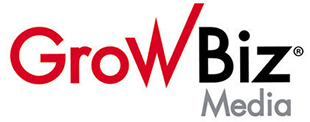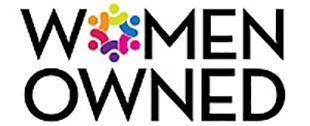Running a small business requires great determination, patience, and a keen eye to understand the challenges that arise because of the availability of limited resources. Small business owners have to keep up with the fierce competition in the market and adapt to the ever-evolving business trends, customer preferences, and requirements.
With the rapid advancement in technology, businesses are finding ways to get the work done faster and in a better way. And, one of the widely adopted technologies is a small business CRM.
The market value of CRM is expected to grow at a rate of CAGR 13.9% from 2023 to 2030. Hence, CRM software is going to be an integral part of the business sphere. Thus, implementing a high-end CRM system is always recommended.
What does it mean by small business CRM in 2023?
Small business CRM is mainly designed for small business owners to centralize customer information and boost relationships. It is beneficial for those with a limited budget as these types of businesses may not afford to invest in different applications or software separately.
With a single CRM application, you can centralize in-depth customer data, track customer interactions, run marketing campaigns, manage pipelines, and so forth. This can assist you in streamlining your business operations and delivering a best-in-class customer experience.
Factors to consider while choosing CRM for small businesses
You must be wondering why is there a need for a separate CRM for small businesses or what makes it different from other CRM applications. Fret not, your answers will be covered here.
The primary focus of a CRM is to simplify sales, marketing, and customer support activities. It is also used to set up workflows and automate repetitive tasks which can save your precious time. This can mean there are only a few differences between small business CRM and regular CRMs.
Let’s dig deeper into the factors for selecting a CRM for small businesses (no follow link) by exploring distinctions between small business CRM and regular CRMs:
- Flexible: Regular CRMs typically cater to organizations with complex business processes and extensive customer data like large enterprises. On the contrary, small business CRM is tailored to meet the demands of small and medium-sized businesses (SMBs) that offer basic CRM functionality.
- Cost-effective: Due to a wide range of features and scalability options, regular CRMs are expensive. Small business CRMs are usually affordable and cost-effective and offer pricing plans suitable for those with budget constraints.
- Easy-to-use: Regular CRMs do not have easy-to-use features due to their advanced functionality. But, small business CRM offers a user-friendly interface and intuitive navigation capability which does not require much technical expertise.
- Customization: Businesses with complex automation rules, integration processes, and custom modules need advanced customization. However, a small business CRM only requires a basic-level customization option.
- Scalability: Regular CRMs can accommodate volumes of customer data and provide access to a large number of users as the business expands gradually. Small business CRMs are not as scalable as compared to regular CRMs but can fulfill the requirements of small business operators.
In a nutshell, a small business CRM should be flexible, easy to use, cost-effective, etc., which can help you in meeting your set business goals. They are mostly useful for smaller teams and it offers essential CRM features to conduct business activities smoothly.
So, what are the primary features of small business CRM that you should consider while choosing the best CRM for your business?
Key features of small business CRM
Besides considering factors such as ease of use, flexibility, scalability, customization, etc., you should also evaluate the primary features a small business CRM offers.
Contact Management: One of the core offerings of a CRM for small businesses should be contact management. In other words, it should have the ability to record holistic customer data, track and manage customer interactions, and get access to 360-degree customer information.
Lead Management: Your CRM should have an effective lead management strategy that enables lead capturing, scoring, and nurturing seamlessly. It can assist sales reps in prioritizing potential leads to aim for fast conversion.
Workflow automation: A robust CRM should provide marketing and sales automation features. With marketing automation, you should be able to obtain leads from multiple sources, run marketing campaigns, and more. With sales automation, you should be able to track the lead journey right from the point of interaction to closure, set up a meeting with your client, etc. All these are done by setting up workflows for specific activities.
Third-party integrations: CRM will not have all the functionality that you are searching for. So, you should integrate external applications like email marketing software, accounting software, etc., with a CRM to initiate specific tasks. This will help you with data integration to and from within the CRM, streamline workflows, and improve the efficiency of team members.
Template library: Most CRMs offer pre-formatted templates to generate emails and documents. It contains a wide range of design elements that can be used to grab the reader’s attention. You can run offer campaigns or produce business documents by adding a logo or other standard elements. This helps you in giving a professional touch and impress customers with a unique statement.
Collaboration tools: You can collaborate with phone or SMS service providers and install built-in calling or SMS tools into the CRM. It allows you to make a call or send a message directly from the CRM without relying on your mobile phone.
One of the best CRM softwares you can think of while making a purchase decision can be free CRM for businesses. It is carefully crafted for businesses who are looking for cost effective CRM solution. And, you can avail all essential CRM features without spending a single penny and optimize business relationships easily.
Megha Adityan is a content writer at Vtiger CRM. It is an organization that provides advanced CRM applications to businesses. The platform allows organizations to optimize their sales, marketing, and customer support activities and improve customer relationships. Twitter Handle: @AdityanMegha.
CRM stock photo by Photon photo/Shutterstock



